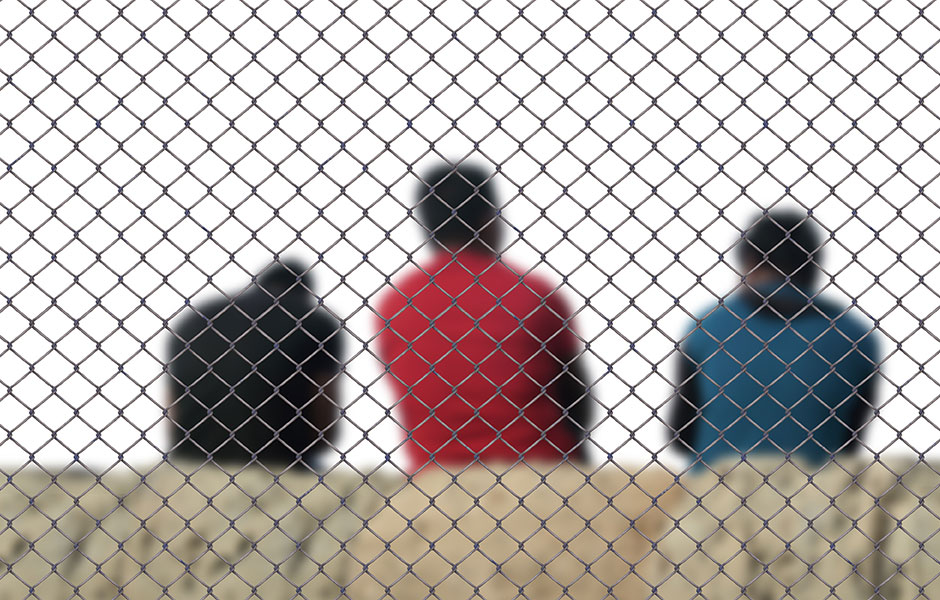Individuals arriving in Canada or already living in the country may be issued one of three different removal orders if the Canada Border Services Agency deems them inadmissible. Learn more about all three of these removal order types below.
Being inadmissible to Canada means that, for some reason, an officer at a Canadian Port of Entry believes that the person being deemed inadmissible to the country is a threat to public health and/or safety.
There are many intricacies to the concept of inadmissibility but on a basic level, inadmissibility falls under a few general categories including medical/health and criminal.
Medical inadmissibility occurs when an individual is deemed to be any of the following: a danger to public health; a danger to public safety or someone who will place excessive demand on health and social services.
- Danger to public health: Based on things like medical exam results and health history, a determination will be made about whether the individual’s health condition will endanger public health
- Danger to public safety: After assessing an individual’s potential for sudden mental or physical incapacity as well as their risk of unpredictable or violent behaviour, officers will decide whether they should be deemed a public safety threat due to their health
- Excessive demand for health/social services: If deemed inadmissible under this provision, it will have been decided that the person’s health condition will strain these services by negatively affecting service wait times or requiring excessive spending because “the services needed to treat and manage the health condition would likely cost more than the excessive demand cost threshold”
Note: According to the Canadian government, the 2022 excessive demand cost threshold is $24,057 per year ($120,285 over five years)
Criminal inadmissibility occurs in situations where an individual has committed an act outside Canada that is an offence in both the country in which it took place and in Canada. Being criminally inadmissible to Canada could also mean that the person in question committed two or more crimes that are ‘summary’ offences in Canada. In both cases, the only requirement for an inadmissibility decision is credible evidence of wrongdoing.
What happens if you are deemed to be inadmissible to Canada?
Simply put, people who are deemed inadmissible to Canada will be asked to leave the country. For a host of different reasons, including but not limited to those listed above under the categories of medical inadmissibility or criminal inadmissibility, Canada will direct inadmissible persons to depart the country — typically back to their country of origin.
Due to the intricacy of inadmissibility, depending on the specific situation, a given individual may be ordered to appear at an admissibility hearing to determine whether they are conclusively admissible to Canada or not. There 3 kinds of decision outcomes of this hearing as follow:
Departure Order
The inadmissible party must depart Canada within 30 days of the departure order taking effect. If given a departure order, the individual must confirm their departure with CBSA at their port of exit. This removal order is the least severe of the three because it includes a condition citing that “If [the individual leaves] Canada and [follows] these procedures, [they] may return to Canada in the future [if they] meet the entry requirements at that time.”
A departure order evolves into a deportation order if the individual takes longer than 30 days to leave Canada or does not formally confirm their departure with CBSA. In that case, an Authorization to Return to Canada (ARC) must be obtained if the person wants to come back to this country in the future.
Exclusion Order
Under most circumstances, exclusion orders block re-entry to Canada for one year. This period extends to five years, however, if the exclusion order was handed down due to any kind of misrepresentation. Any individual given an exclusion order can explore returning to Canada in less than a year if they apply for an ARC. Finally, a crucial stipulation of exclusion orders is that if the CBSA paid for the removal of the individual in question, they must repay that amount.
Deportation Order
The most severe type of removal order, deportation orders permanently bar the individual in question from returning to Canada unless they apply for an ARC. Much like the stipulation involved with exclusion orders, the individual being deported must repay any removal costs initially paid for by the CBSA and in this case, repayment of this cost is a precursor to being eligible to return to Canada at all.
Inadmissibility is a confusing part of the Canadian immigration landscape. Therefore, it may be beneficial to consult with an experienced Canadian immigration lawyer to discuss what options and potential remedies are available to people who are deemed inadmissible to this country.




